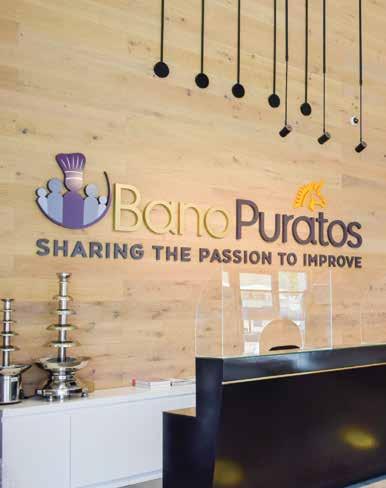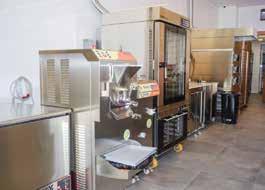
3 minute read
The case for boutique hotels in the Middle East
Boutique hotels are typically small, intimate establishments with stylish designs, décor and a strong identity. Featuring 10 to 100 rooms, their unique character and individualized service points are what distinguish them from traditional hotels. James Wrenn, associate director of Colliers International, explores the growing trend of boutique properties, particularly in the Middle East.
It is reported that, Ian Shrager and Steven Rubell first coined the phrase “boutique hotel” when they opened Morgans on Madison Avenue, New York, in 1984. Since then, this concept has seen a spurt in growth and popularity among travelers pushing for more options within this segment.
Boutique hotels can be independently owned or a part of a chain. Independently owned boutique hotels have no brand affiliation to larger chains. They are able to define their own standards and can portray a unique story and positioning in the market. Furthermore, these hotels can be affiliated with hotel associations such as Small Luxury Hotels of the World and Relais & Chateaux.
Many of the larger chains offer soft brands that are a grouping of affiliated independent hotels within the chain itself. Large hotel companies use acquisitions and affiliations with independent hotels in an effort to penetrate the boutique hotel market space. These independent hotels gain access to the organization’s reservation system and marketing resources while maintaining their individual identities. Intercontinental Hotel Group (IHG), one of the largest hotel chains in the world, acquired Kimpton Hotels and Restaurants in 2014 for a reported USD 430 million, making it a market leader in the boutique segment.
This growing trend of boutique hotels has become evident in the Middle East too, albeit it at a much slower pace. One of the first definitive boutique properties to open in the region was the XVA Art Hotel, which opened in one of the oldest communities in Dubai in 2003. The concept gained traction in the region through its increase
in popularity and soon after, expanded to other countries. Numerous countries in the region, such as Lebanon, had limited presence of international brands, which facilitated the growth of small boutique properties.
Boutique hotels are among the most trusted investments in the hospitality industry. They offer developers and owners the opportunity to be creative and diverse with their offerings. The premium on occupancies and ADR achieved by boutique properties can provide a desired return on investment proportionate to the overall investment size.
To facilitate the development of boutique hotels in the region, we have identified a number of areas, which could stimulate the development of the sector, particularly in the GCC region:
• Master developers creating space within their masterplans for the development of boutique hotels by offering smaller parcels of hospitality zoned land
• Developers being incentivized to build smaller hotels and offering them to the market to let or for management by independent and start-up operators/brands
• Unique classification codes for boutique hotels with associated star-rating systems could provide the opportunity for the creation of exciting concepts in this space
Boutique hotels are poised to recover quickly in the post-pandemic environment given their popularity and size compared to larger hotels. Boutique hotels could represent the next wave of opportunity for growth as we enter a new development cycle. In the Middle East in particular, there appears to be plenty of scope for further development in this niche and exciting space.

White Complex bldg / No.167. Block D, Street 62. Shuwaikh, Industrial Area 3, Kuwait
+965 2492 0088/0099
New Premises in Kuwait

In August 2020, BanoPuratos Kuwait opened its new showroom to meet the needs of their customers and keep pace with the current market trend.
Our showroom is equipped with the best tools, raw materials, accessories and molds with the highest quality for bakery, pastry, chocolate and ice cream sectors.

Our newly opened innovation center with the most skilled chefs offer collective courses and demos for chefs and entrepreneurs who need development and improvement in their level of production.

They share their professional knowhow and develop new recipes or product concepts together with you to enable you to create some of the world’s best finished goods.
Our team of technical advisors is at your service to help you develop skills in bakery, patisserie, chocolate and Ice cream making.











